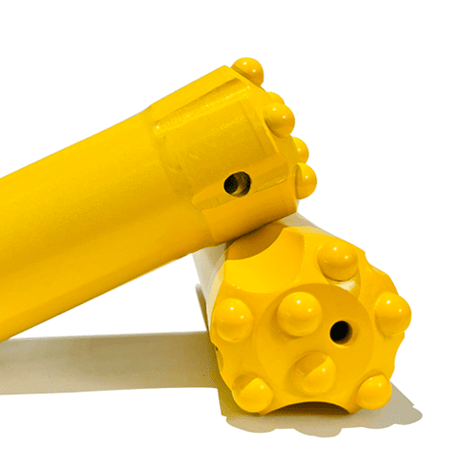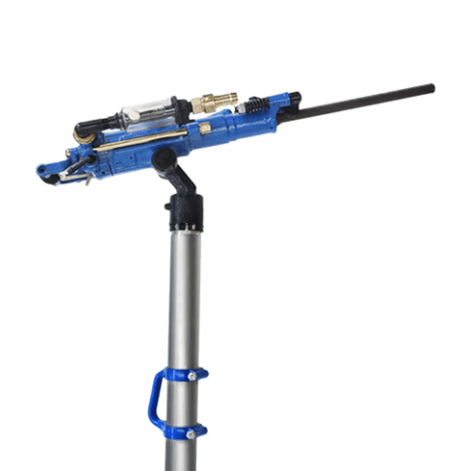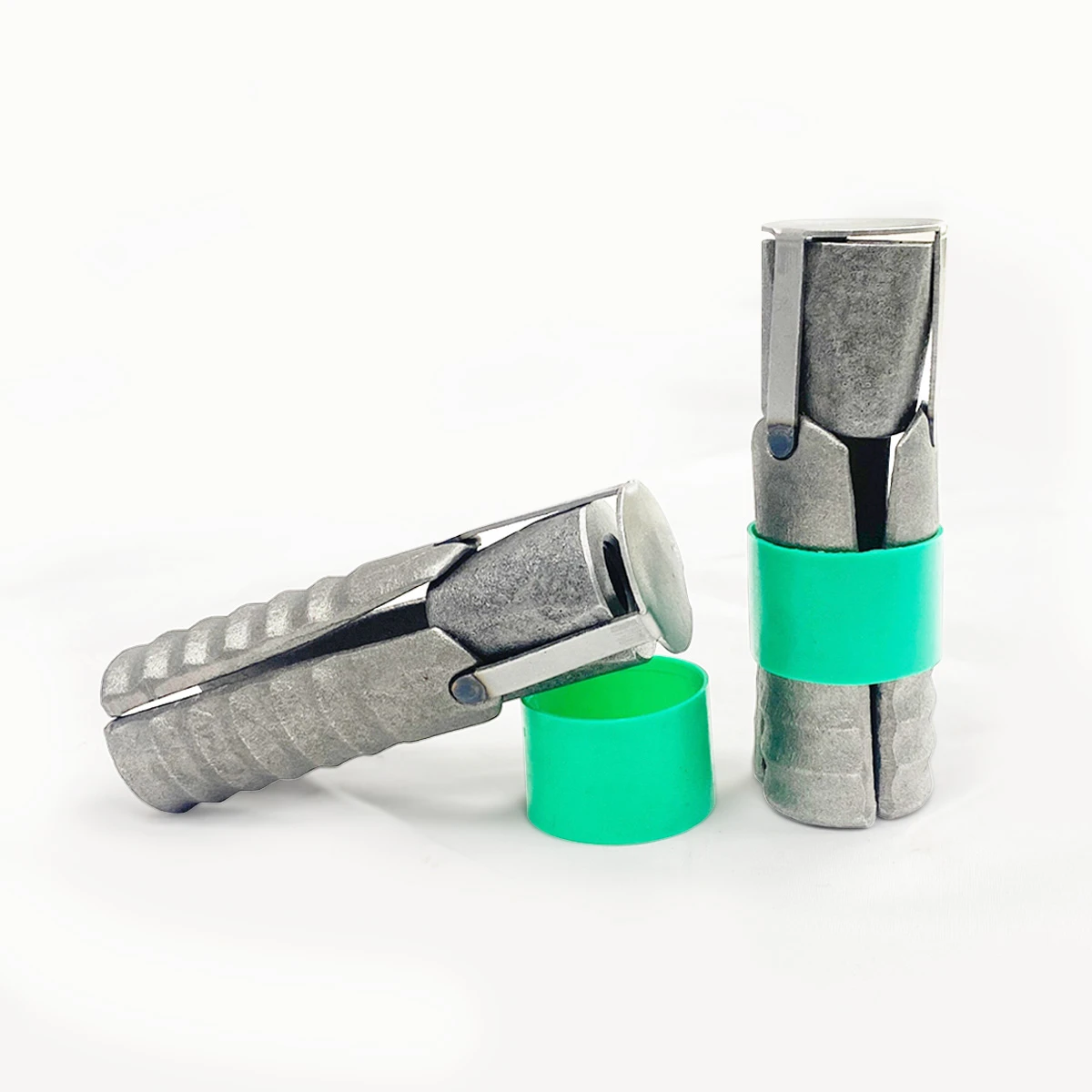Choosing the right drill bit is crucial for any job, whether you're working with metal or masonry. This article dives deep into the world of drills and drill bits, explaining what makes good drill bits, how to choose the best drill bit for your needs, and ensuring you get quality drill bits that last longer. Understanding the nuances of drill types and materials will save you time, frustration, and broken bits.
What Exactly is a Drill Bit and Why Does it Matter?
At its core, a drill bit is a cutting tool used in conjunction with a drill to create holes in various materials. Think of it as the workhorse of your drilling operation. Whether you're assembling furniture, working on a construction site, or crafting intricate designs, the drill bit is the point of contact, the part that does the actual cutting. The sharpness, material, and design of your drill bit directly impact the efficiency and quality of your work. Using the wrong drill bit can lead to frustration, damaged materials, and even broken bits. Selecting the best drill bit for the job ensures clean, accurate holes and saves you valuable time and effort.
Imagine trying to sew a delicate fabric with a thick, dull needle. The result would likely be a mangled mess. Similarly, using a cheap bit on hardened steel will likely lead to a dull bit and a lot of wasted effort. Investing in quality drill bits means you'll be able to drill through materials effectively and efficiently. Consider a garment manufacturer needing to create precise buttonholes. A high-quality drill bit used in a sewing machine, like the ones we offer at Jinyuent, ensures a clean, professional finish. Or think about a construction worker needing to bore holes in concrete; a robust masonry drill bit is essential for getting the job done.
Different Types of Drill Bits: Which Bit is Right for Your Project?
The world of drill bits is surprisingly diverse, with each type designed for specific materials and applications. Understanding these differences is key to choosing the right tool. So, what types of drill bits are out there?
- Twist Drill Bits: These are perhaps the most common type, easily recognizable by their spiral flutes. They are versatile and suitable for general-purpose drilling in wood, plastic, and steel. Variations include split point tips for faster starts and reduced walking. Jinyuent offers a range of threads suitable for various materials, much like the versatility of a twist drill.
- Brad Point Bits: Featuring a sharp central point, these bits are excellent for precise drilling in wood, preventing the drill bit from wandering.
- Forstner Bits: These cylindrical bits create clean, flat-bottomed holes, ideal for woodworking projects requiring precise joinery.
- Hole Saws: Used to cut large diameter holes in various materials, often for installing pipes or wiring.
- Step Drill Bits: These conical bits can drill multiple hole sizes, making them useful for sheet metal work.
- Masonry Drill Bits: Specifically designed for drilling into masonry, concrete, and brick. They feature a carbide tip that can withstand the abrasive nature of these materials.
- Tile and Glass Bits: Spear-shaped tips designed to drill into brittle materials like glass and tile without cracking them.
Choosing the correct drill bit is crucial. Using a wood bit on steel, for instance, will quickly dull the bit and make the job incredibly difficult. Imagine a construction worker needing to install anchors in a cinder block wall. A standard twist drill bit would quickly become useless. They need a robust masonry drill bit to effectively drill into brick.
Drill Bits for Metal: What Makes the Best Drill Bits for Metal?
When it comes to working with metal, the demands on a drill bit are significantly higher. The hardness and density of steel and other metals require drill bits made from tougher materials and with specific design features. So, what makes good drill bits for metal? And what are the best drill bits for metal?
Durability is paramount. Cobalt drill bits, particularly those made with m42 cobalt, are renowned for their heat resistance and ability to maintain their sharpness even when drilling through hard steel. HSS (High-Speed Steel) drill bits are a more economical option for drilling softer metals and are often coated with titanium nitride for increased wear resistance. The split point tip is another crucial feature for metal drilling, preventing the drill bit from walking on the smooth surface of the workpiece and allowing for faster, more accurate starts. A 135-degree split point is common for metal drilling.
Consider the needs of a textile factory worker needing to drill through thick steel components of a sewing machine. A standard hss bit might quickly dull or even break. A cobalt drill bit would be a far better choice, ensuring a clean and efficient drill. Furthermore, using a cutting oil or tapping fluid when drilling metal is essential to reduce friction and heat, prolonging the life of the drill bit and improving the quality of the hole. Remember Mark Thompson, the procurement officer? He understands that investing in quality drill bits for metal, even if they cost a little more upfront, saves money in the long run by reducing breakage and the need for frequent replacements.
Conquering Concrete: What Makes a Good Masonry Drill Bit?
Drilling into masonry, such as concrete, brick, or cinder block, presents a unique set of challenges. These materials are hard and abrasive, requiring specialized drill bits designed to withstand these conditions. So, what distinguishes a good masonry drill bit from a standard drill bit?
The key feature of a masonry drill bit is its carbide tip. Carbide is an extremely hard material that can effectively chip away at the masonry. These tips are brazed onto a steel shank, creating a robust tool capable of withstanding the impact forces involved in hammer drilling. Unlike drill bits that cut through material, masonry drill bits pulverize it. The flutes on a masonry drill bit are designed to remove the dust and debris created during the drilling process.
Think about a roofing contractor needing to install fasteners into a concrete roof. A standard drill bit would simply skate across the surface. They need the best masonry drill bits with a durable tungsten carbide tip to effectively drill into brick or concrete. The effectiveness of a masonry drill bit also depends on using the correct drilling technique, often involving a hammer drill setting that provides a percussive action to aid in breaking up the masonry. Even the best drill bit won't perform well if used incorrectly.

Cobalt vs. Steel Drill Bits: When Should You Choose Which?
The choice between cobalt and steel drill bits often comes down to the material you're drilling and the demands of the job. Both types have their strengths and weaknesses.
Cobalt drill bits are made from high-speed steel with a higher percentage of cobalt. This addition of cobalt significantly increases the drill bit's heat resistance, allowing it to maintain its hardness and sharpness at higher temperatures. This makes cobalt bits ideal for drilling hard and abrasive materials like stainless steel, cast iron, and titanium alloys. They are also less prone to dulling when used at higher rpm.
Steel drill bits, particularly those made from hss, are a more economical option for general-purpose drilling. They are suitable for softer materials like wood, plastic, and mild steel. While they can drill harder metals, they are more susceptible to heat buildup and dulling, especially if used at high speeds without adequate lubrication.
Consider a machinist working with hardened steel. They would likely reach for cobalt drill bits for their superior heat resistance and durability. However, for a DIY enthusiast working on a plastic project, a set of hss drill bits would likely suffice. The initial cost of cobalt drill bits is higher, but their ability to last a long time can make them a worthwhile investment for frequent users or for demanding applications. Ultimately, the best drill bit depends on the specific task at hand.
Understanding Drill Bit Materials: HSS, Carbide, and Beyond.
The material a drill bit is made from significantly impacts its performance and suitability for different applications. Beyond cobalt and steel, several other materials and coatings play a role.
- High-Speed Steel (HSS): A common and versatile material for drill bits, offering a good balance of hardness, toughness, and cost-effectiveness. HSS drill bits are suitable for general-purpose drilling in wood, plastic, and softer metals.
- Cobalt Steel: As mentioned, the addition of cobalt to hss increases heat resistance and hardness, making cobalt drill bits ideal for tougher metals. M42 is a high-grade cobalt steel known for its excellent performance.
- Carbide: Extremely hard and wear-resistant, carbide is primarily used for the tips of masonry drill bits and for specialized drill bits designed for demanding materials. Tungsten carbide is a common type.
- Titanium Coating: A thin coating of titanium nitride or titanium aluminum nitride can be applied to hss drill bits to increase surface hardness, reduce friction, and extend their lifespan. These are often referred to as titanium bits.
When you see a set of drill bits, they might include a variety of materials to cover different drilling needs. Cheaper bits are often made from lower-grade steel and may not hold up well under pressure. Understanding the materials drills are made from helps you make informed decisions and choose the best quality for your specific applications.

How to Sharpen Drill Bits: Extending the Life of Your Tools.
Instead of constantly replacing dull bits, learning how to sharpen them can save you money and frustration. A sharp drill bit cuts more efficiently, requires less force, and produces cleaner holes.
Several methods exist for sharpening drill bits:
- Using a Bench Grinder: This is a common method for quickly sharpening steel drill bits. It requires a steady hand and the ability to maintain the correct angles.
- Using a Drill Doctor: The Drill Doctor is a specialized tool designed to simplify the sharpening process, making it easier to achieve consistent results.
- Using a Sharpening Stone: For fine sharpening or touching up an edge, a sharpening stone can be used.
Regardless of the method, maintaining the original geometry of the drill bit is crucial. This includes the point angle (typically 135 degree for metal) and the relief angle. Regularly sharpening your drill bits not only saves money but also improves the efficiency and safety of your drilling operations. Even the best drill bit will eventually go dull with use. Knowing how to sharpen them keeps your quality bits performing at their peak.
Choosing the Right Drill for the Job: Hand Drill vs. Drill Press.
The type of drill you use also impacts the performance and effectiveness of your drill bit. The two most common types are hand drills and drill presses.
A hand held drill, also known as a power drill, is a versatile and portable tool suitable for a wide range of applications. They come in both corded and cordless varieties, offering flexibility and convenience.
A drill press is a stationary tool that provides greater accuracy and control. The workpiece is secured to a table, and the drill bit is lowered vertically using a lever. This setup allows for precise hole placement and consistent drilling depth.
For tasks requiring high precision, such as drilling precise holes in metal for machining applications, a drill press is generally preferred. For general construction, woodworking, or diy projects, a hand drill is often sufficient. The choice depends on the specific needs of the job and the level of accuracy required. Even the best drill bit will perform better when used with the appropriate drill.

Maintaining Your Drill Bits: Ensuring Longevity and Performance.
Proper maintenance is essential for maximizing the lifespan and performance of your drill bits. Treating your tools well ensures they're ready when you need them.
Here are some key maintenance tips:
- Clean Your Drill Bits: After each use, wipe your drill bits clean to remove debris and prevent rust.
- Store Drill Bits Properly: Store your drill bits in a dedicated case or organizer to protect them from damage and keep them organized.
- Lubricate When Drilling Metal: As mentioned earlier, using use a cutting oil or tapping fluid when drilling metal reduces friction and heat, extending the life of your drill bits.
- Sharpen Regularly: Don't wait until your drill bits are completely dull. Regular sharpening keeps them cutting efficiently.
- Avoid Overheating: Drilling too quickly or with excessive pressure can cause drill bits to overheat and lose their temper. Let the drill bit do the work.
By following these simple steps, you can ensure your set of drill bits remains in good condition and performs optimally for years to come. Taking care of your quality drill bits is an investment in your efficiency and the quality of your work.
Where to Buy Quality Drill Bits: Finding Reliable Suppliers.
Finding reliable sources for quality drill bits is crucial. While cheaper bits might seem appealing initially, they often lack the durability and performance of higher-quality options.
Here are some places to consider when purchasing drill bits:
- Specialty Tool Suppliers: Companies like MSC offer a wide selection of industrial-grade drill bits and other cutting tools.
- Industrial Supply Companies: Local and national industrial suppliers often carry reputable brands like Norseman, Dormer, and Precision Twist Drill.
- Reputable Hardware Stores: While selection might be more limited, some hardware stores carry good quality drill bit brands like Milwaukee and Dewalt.
- Online Retailers: Be cautious when buying online. Stick to reputable sellers and read reviews carefully.
When choosing a supplier, consider their reputation, the brands they carry, and their customer service. Sometimes, you get what you pay for, and investing in a good set of drill bits from a reputable source can save you money and frustration in the long run. Think about Mark Thompson's focus on both quality drill bits and competitive pricing; finding a supplier that balances both is key for B2B buyers. Jinyuent, as a manufacturer and supplier, understands the importance of providing reliable quality drill bits.
In summary, remember these key points when choosing drill bits:
- The material of the drill bit (like cobalt or steel) should match the material you're drilling.
- Masonry drill bits require a carbide tip to effectively drill through concrete and brick.
- A split point tip is beneficial for drilling both metal and wood, preventing walking.
- Regularly sharpen your drill bits to maintain their cutting efficiency.
- Use the correct drill (either hand drill or drill press) for the job.
- Proper maintenance, including cleaning and lubrication, extends the life of your drill bits.
- Invest in quality drill bits from reputable suppliers for long-lasting performance.
By understanding these factors, you can confidently choose the best drill bit for your next project, ensuring efficient and accurate drilling every time. Whether you're a garment manufacturer using a sewing machine with specialized drill bits or a construction worker needing to bore holes in a cinder block, selecting the right tool makes all the difference.
Post time: 1 月-20-2025














